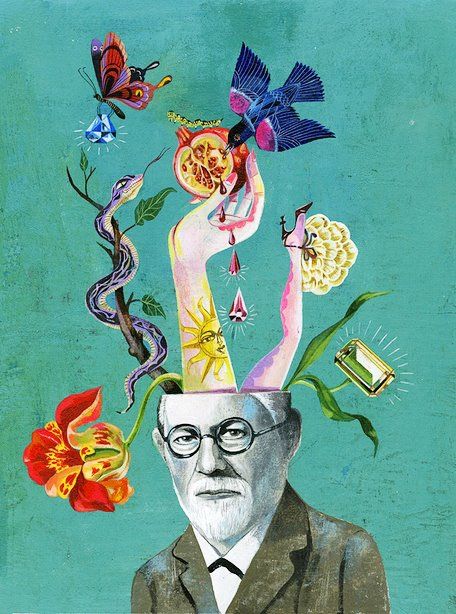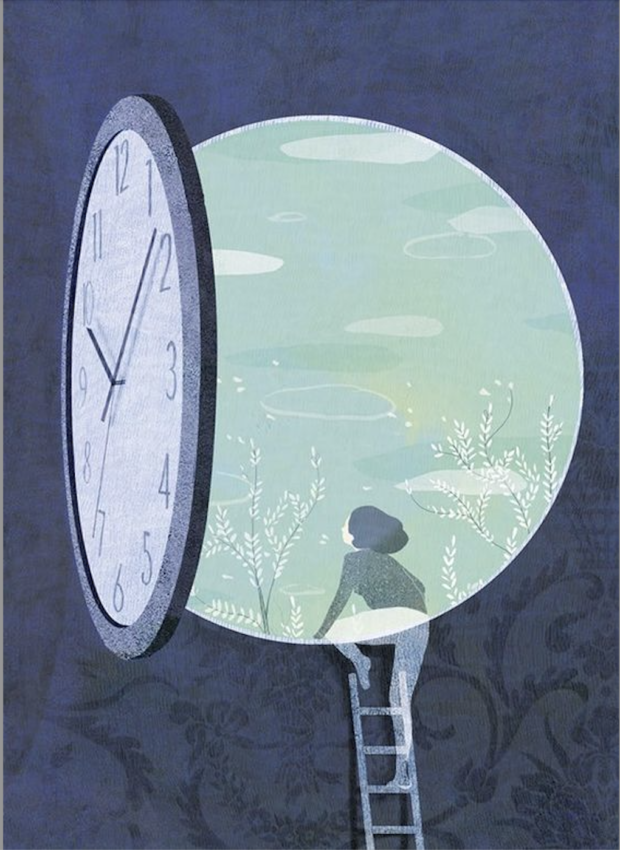
“ The earth is heavy and opaque without dreams,” wrote Anaïs Nin ( 1903-1977) in her diary. Sigmund Freud (1856-1939) described dreams as the “ royal road to the knowledge of our unconscious activities,” in which our primitive self meets the civilized one, and where all memories are collected. The unconscious is the great guide to get to know oneself in entirety. Carl Jung (1875-1961) defined it as an invaluable resource :
The unconscious communicating through dreams is at least half of one’s being. It offers advice and guidance that could be obtained from no other source. Thus the interpretation of dreams, whether by the analyst or by the dreamer himself is an entirely personal business.
Raymond Poincaré (1854-1912), the French mathematician remarked on the phenomenal nature of dreams – how dreams can bring resolutions which were not reached in an awake state. He recounted that upon waking up one night, he grasped the answer to a long-lasting mathematical problem. In retrospect, he figured that he was inspired the answer in his dream.
Freud, in his seminal work, The Interpretation of Dreams, emphasized that “ dreams have at their command memories which are inaccessible while awake. ”

The way knowledge is recollected in dreams shows us that nothing which we have mentally acquired or learned can be entirely lost. Freud explained many episodes of how memories are unconsciously registered without us being aware. But they would bump up in dreams :
I have noticed myself from my own dreams and questioned the source of particular elements of a dream. Before completing this book, several times I dreamed a church tower of very simple design, which I could not remember ever having seen. Then I suddenly recognized it, with absolute certainty, at a small station on the line between Salzburg and Reichenhall. This was during the second half of 1890s. Yet the single time I had travelled on that line was in 1885.
Freud argued that the primary psychic function of a dream is the representation of a wish as fulfilled. The representation may be direct or it may include personal symbols which the dreamer can decode himself with insight and attention. The dreamer’s wish unfolds free of physical restraints, space and time. The virtual reality instantaneously becomes the only reality. Past, present and future are all one captured in the moment the wish is fulfilled. He explained how:
Dreams give us knowledge of the past and they may also project the future. By picturing our wish as fulfilled, dream projects us to the future. But this future molded by the dreamer’s wish is lived as present…Nevertheless the ancient belief that dreams foretell the future is not wholly devoid of truth.
Regarding the reality feature of dreams, Freud explained that dreams offer a guided tour to self-discovery:
In dreams is truth, through which we get to know ourselves as we are without the disguises we wear to the world. Dreams have not shown me what I ought to think of a man; but I have occasionally learnt from a dream, greatly to my astonishment, what I do think of a man and how I feel towards him.
In the dream, the threshold to unconscious is open. It allows one to cross the rich realm of unconscious, and access deeper layers of knowledge where self-discoveries can be made. What we are not conscious of during the day – in our thoughts, feelings, intentions and memories – reveal its presence without inhibition during the dream. Unknown parts of true self can be reached, and brought to use in the conscious dwellings of everyday life. It is like a safety valve for the thinker-dreamer human being to align himself with the truth of his being.

The renowned French philosopher Montaigne (1533-1592) marked the paradox of sleeping and being awake. He stated that our unconscious wakes up during sleep, the veils are lifted and our perception becomes sharper. Yet upon waking up, it looks as if we are asleep entrapped in restraints and burdens of ordinary consciousness. Our thinking and perception is drawn back to the boundaries of ordinary consciousness. The realm outside these boundaries remains dormant and inaccessible. He resumed : “ Those who compared our lives with a dream were right. We were sleeping awake and waking up asleep.”
Duygu Bruce







